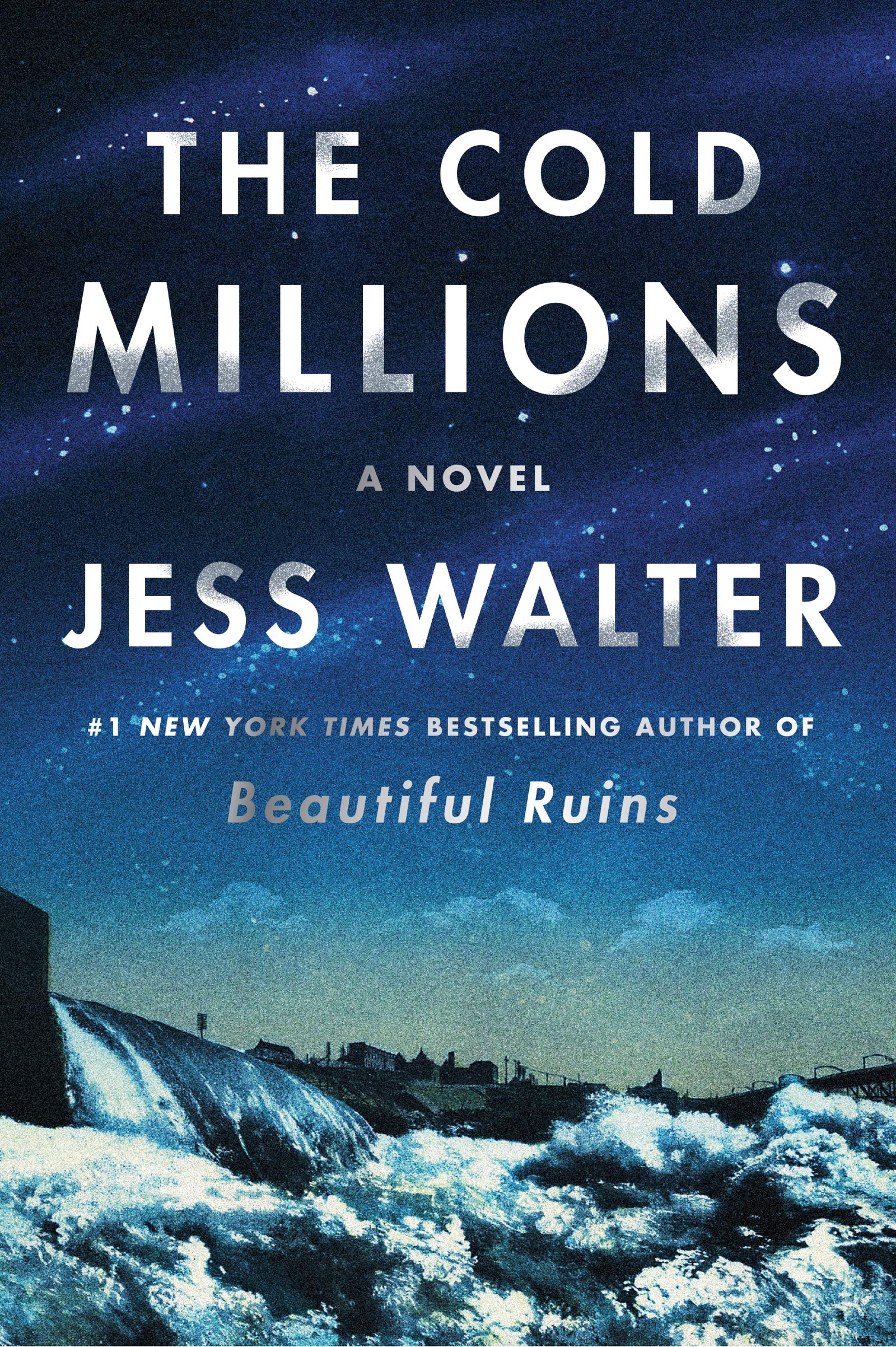
I joined the IWW in 2005 because of a comic book (WOBBLIES! A GRAPHIC HISTORY OF THE INDUSTRIAL WORKERS OF THE WORLD, edited by Paul Buhle and Nicole Schulman) and have remained a member in good standing ever since (X number 358133). Of course I already knew the IWW from Steinbeck and Dos Passos, and the Wobblies were considered heroes by many on the left during the 1960s. As income inequality worsens and we sink deeper and deeper into a new Gilded Age, I carry my Red Card with pride.
A few years before I joined the One Big Union, I had discovered a writer named Jess Walter, a former reporter from Spokane, WA. His first novel, OVER TUMBLED GRAVES (2001), was an atmospheric, convincing, and beautifully written police procedural, which looked to be the start of a series. Walter, however, had other plans. His detective character spent most of Walter’s second novel on the sidelines, and has not appeared since. His third novel, CITIZEN VINCE (2005), would probably have won me over more completely if I didn’t have such an aversion to mobsters.
Walter hit the big time (deservedly) with his next, THE ZERO (2006), the CATCH-22 of 9/11 (featuring a prescient evisceration of Rudy Giuliani). As in CATCH-22, what at first seems darkly hilarious turns heartbreaking by the finish; otherwise, it bears little resemblance to any other book I’ve ever read. And speaking of prescience, THE FINANCIAL LIVES OF THE POETS (2009) has to be the first novel to confront the crisis of 2008 head-on, boundless in its compassion for the victims of what the IWW used to call “the Trusts,” Big Business and Wall Street and all the other faceless demons of predatory capitalism.
I will skip lightly over BEAUTIFUL RUINS (2012), his mega-bestseller, which is also the only one of his novels to leave me cold. I’m just not a fan of Hollywood satire–too easy a target, in my reckoning. I was excited, then, to learn that after an eight-year gap he had published THE COLD MILLIONS (2020), a novel about the IWW and the Spokane Free Speech Riots of 1909-1910.
I had some trepidation. It’s a challenge to write a novel where good and evil are so clearly delineated, and where evil has all the power. Octavia Butler’s KINDRED, for example, or Ballard’s EMPIRE OF THE SUN. I feared a long slog through police beatings, hunger strikes, and unrelieved misery. Instead, Walter presents the main narrative through the viewpoint of Ryan “Rye” Dolan, nearly 17, and devoted to his older brother and fellow hobo, Gig. During their tramping around the Pacific Northwest, Gig has fallen under the spell of the IWW and is full of revolutionary zeal. Rye, meanwhile, remains on the margins–at least at the outset.
Breaking up Rye’s narrative are chunks of first-person testimony from other major and minor characters, each with a distinctive voice and a piece of the overall puzzle: cops, tramps, anarchists, housewives, unionists, fixers, Ursula the Great, and Gig himself. Rather than slowing the plot, these sections serve as accelerants to keep the reader emotionally engaged from start to finish.
The Spokane of THE COLD MILLIONS is both microcosm and one of a kind. Lemuel Brand, the (fictitious) robber-baron villain of the book, stands for Cornelius Vanderbilt and J. P. Morgan and Henry Ford, yet is tortured by a fear that is uniquely his own. The treatment Gig receives at the hands of the Spokane police is typical of the times even as Gig himself–alcoholic, impulsive, helpless to resist his wanderlust–is completely his own man. The IWW organizers John Walsh and Frank Little carry on the tradition of Joe Hill and Mother Jones, yet became heroes themselves in Spokane.
Walsh and Little are among a number of historical figures who appear in THE COLD MILLIONS, along with acting police chief John Sullivan, lawyer Fred Moore, and, most memorably, the Rebel Girl herself, Elizabeth Gurly Flynn, married, pregnant, and traveling alone, with whom Rye cannot help falling unrequitedly in love. Gurley’s firebrand speeches on behalf of the IWW ignite the plot of the book as they did the historical riots. Walter seamlessly integrates fact and fiction, and admirably tries to separate them again in his acknowledgements.
Period details are rich and evocative, the appropriate slang sprinkled in judiciously, with only a very few moments that felt anachronistic. Otherwise the clothes, décor, personal hygiene, mores, and politics all rang true.
As a prose stylist, Walter has always been clean and vivid, writing in the rhythm and vocabulary of his viewpoint characters. He’s only gotten better over the years. There’s scene in THE COLD MILLIONS where Gurly faces down a homicidal mob that is a marvel of ventriloquism and a master class in how to write a soliloquy. As a delineator of character, he finds humanity where you least expect it. As a plotter, he is more than happy to deploy the skills he honed as a thriller writer. He’s said in interviews that he considers suspense fully compatible with literature, and THE COLD MILLIONS is proof.
You would be hard pressed to find a historical novel with more relevance to the oligarchy we are living under right now. Walter’s novel ends in 1964, with the testimony of one last surviving character, wishing for something he could say to his children and grandchildren that would sum up what he’s learned. “Something that would open their hearts and create in them an unassailable courage, a generosity of spirit, faith in humanity.”
That something, of course, is THE COLD MILLIONS.
